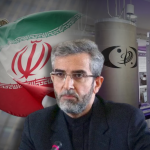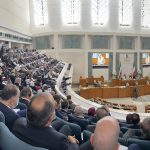Easing tensions with Lebanon prompt Yemen, Kuwait and Saudi envoys to return


The Saudi foreign ministry said on Thursday that its ambassador has returned in response to calls by “moderate Lebanese political forces and after remarks by Prime Minister Najib Mikati regarding ending all political, military and security activities” that impact Saudi Arabia as well as other Gulf countries.
Kuwait’s foreign ministry has issued a similar statement and Mikati’s office confirmed that Kuwait’s envoy will be returning to Lebanon by the end of this week. Later on Thursday, Yemeni foreign ministry too confirmed returning of its envoy to Beirut. “The move is in response to Beirut’s pledge to halt activities and practices offensive to Arab countries,” the Yemeni ministry said in a statement.
Related Posts
Najib Mikati, the Prime Minister of Lebanon, welcomed the move through his tweet. He said Lebanon was “proud of its Arab affiliation and upholds the best relations with Gulf states”, describing these nations as pillars of support to Lebanon.
Lebanon’s Interior Minister Bassam Mawlawi has also lauded the move. “Once again the Kingdom of Saudi Arabia has proven, by the return of its ambassador … that Lebanon is in its heart and conscience and that it will never abandon it,” Mawlawi said. “We will continue to work on strengthening ties and we will not allow any harm or offence to come its way from now on,” he added.
Lebanon has been struggling one of the worst economic crisis following bomb explosion in Beirut port. The country’s sharpest depression has been further bolstered by the Gulf rift that added to Lebanon’s economic crisis. On Thursday, IMF [International Monetary Fund] noted that it had reached a draft funding agreement with Beirut. But for this the country has to first enact a batch of economic reforms for final approval of deal by the IMF board.












